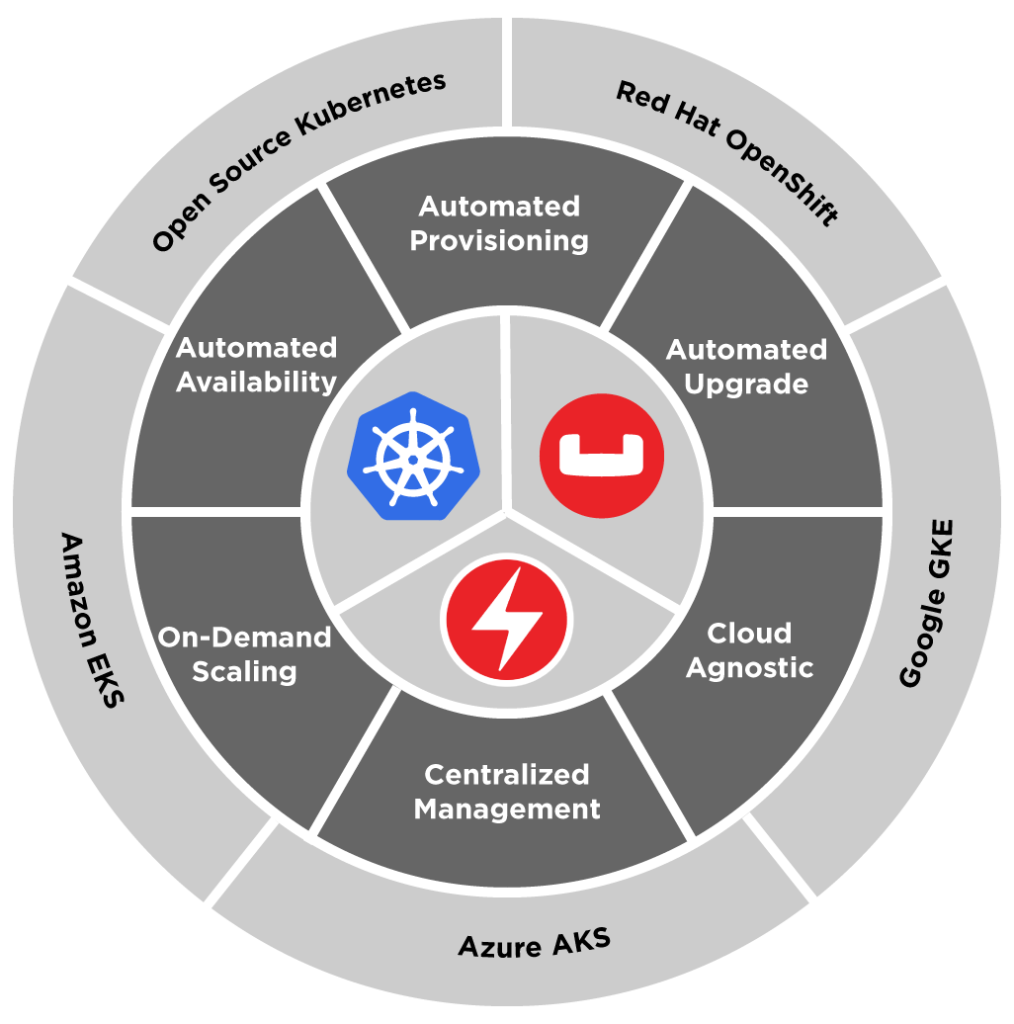We’re proud to announce the launch of Couchbase Autonomous Operator 1.2.0. This version ships with more advanced features that let you autonomously create, run, and manage Couchbase on Kubernetes. Now you can use all the power of Couchbase Server in the cloud to build and scale your applications in record time.

This substantial update introduces new manageability and automation features, including:
- Automated upgrade of Couchbase clusters
- Automated rolling upgrade of Kubernetes clusters
- Automated resource validation through admission controller
- Public connectivity for Couchbase clients
- TLS certificate rotation
- Helm chart for Couchbase Autonomous Operator
- Log collection improvements
- Production certification for cloud-managed Kubernetes services – Amazon EKS, Azure AKS, and Google GKE
While Couchbase Autonomous Operator 1.2.0 is a groundbreaking new release from a product perspective, one of the reasons I’m so excited about this release is because we have partnered so closely with our customers, community, and partners throughout the product development cycle.
What’s New in Couchbase Autonomous Operator 1.2.0?
Automated Upgrade of Couchbase Clusters
The Operator is now capable of performing automated upgrades of Couchbase Server clusters. Upgrading an entire Couchbase cluster is as easy as specifying the desired Couchbase version in the CouchbaseCluster configuration, and then pushing it to Kubernetes. The Operator manages the entire online rolling upgrade by itself.
Integrated CouchbaseCluster Resource Validation
The Operator now requires resource validation via an admission controller.
In previous releases of the Operator, a command-line tool called cbopctl was required whenever you submitted a new CouchbaseCluster configuration to the Operator. This tool would perform client-side validation of Couchbase cluster configuration changes before the Operator would act on them, thus protecting your Couchbase deployment (and the Operator) from any accidental damage that might arise from an invalid configuration.
Starting with this release, validation checks are performed by the admission controller from within the Kubernetes cluster itself. One of the many benefits of this change is that it allows you to use native commands like kubectl create and oc edit from anywhere, without having to worry about installing any extra command-line tools.
Helm Support
Helm is a great platform for deploying, managing, and upgrading the Operator. Official Couchbase charts make installation simple and repeatable, and Helm acts as a convenient single point of authority for keeping track of the resources that are associated with each deployment.
Whether you’re new to Helm, or already have an existing Helm infrastructure, the official Couchbase Helm charts are a fantastic way to get started using the Operator.
Public Connectivity for Couchbase Clients
This release introduces support for connecting clients to the Couchbase cluster over the internet via public IP-based addressing and dynamic DNS.
Support for Public Kubernetes Services
The Operator now offers full production support on the following public Kubernetes services:
- Amazon Elastic Container Service for Kubernetes (EKS)
- Google Kubernetes Engine (GKE)
- Microsoft Azure Kubernetes Service (AKS)
Rolling Upgrade of Kubernetes Clusters
With support for automatic rolling Kubernetes upgrades, the Operator helps take the hassle and anxiety out of upgrading your Kubernetes or OpenShift cluster. By using disruption budgets, readiness probes, and custom Couchbase logic, the Operator ensures that your Couchbase deployment doesn’t experience any downtime or data loss.
TLS Certificate Rotation
Kubernetes certificate rotation is supported in order to enable the replacement of expired or compromised certificates.
Log Collection Improvements
Several enhancements have been made to cbopinfo, including a unified log collection experience for stateful and stateless deployments.
Here are few resources on Couchbase Autonomous Operator 1.2.0 –
- Download Couchbase Autonomous Operator 1.2.0
- Getting started Couchbase Autonomous Operator 1.2.0
- Share your thoughts on the Couchbase Forums
